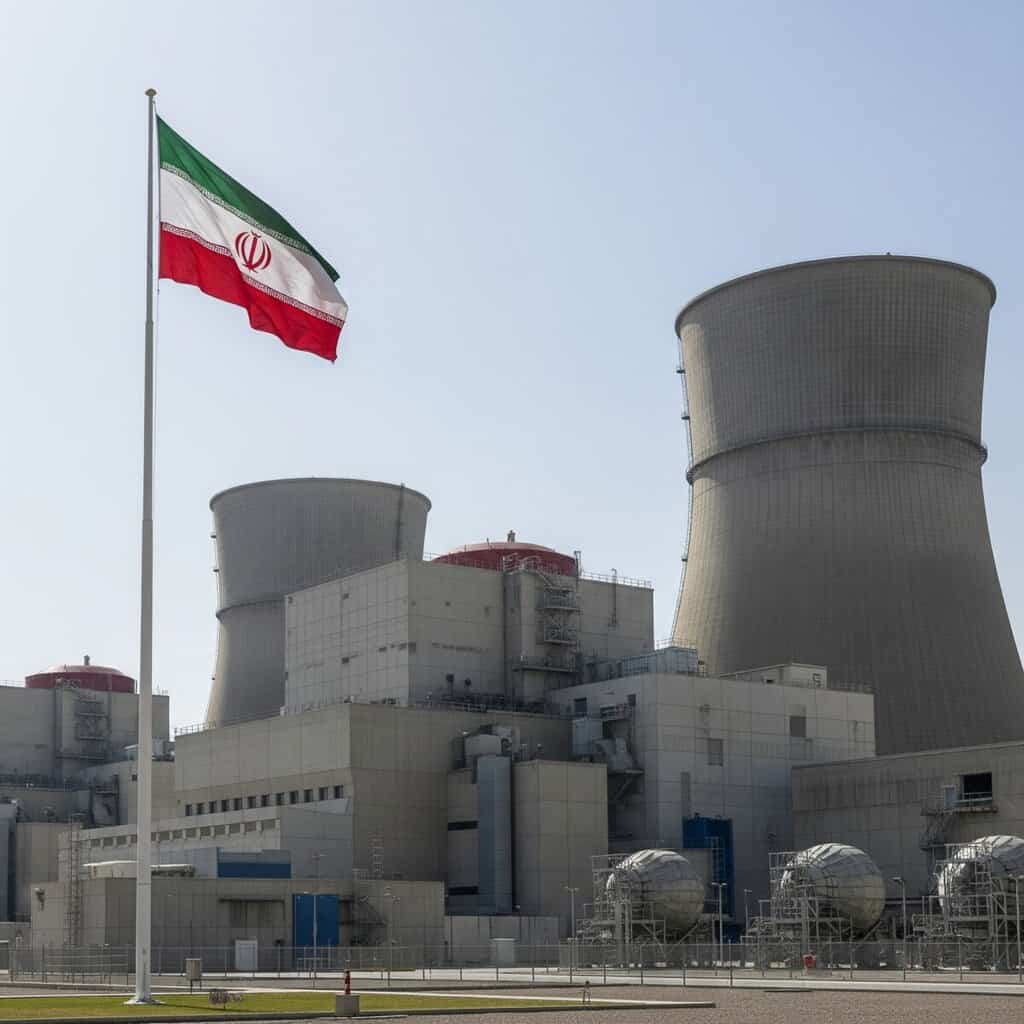Unpacking the Iran Nuclear Program Future: Saudi Warnings and Regional Stakes
The geopolitical landscape of the Middle East remains perpetually on edge, with few issues carrying as much potential for regional destabilization and broader international ramifications as Iran’s nuclear ambitions. Recent reports have brought into sharp focus the escalating tensions surrounding Tehran’s atomic trajectory, particularly in light of high-stakes warnings reportedly issued by Saudi Arabia. These warnings, suggesting the specter of an Israeli military strike should Iran fail to reach a new nuclear agreement with a potential incoming US administration, underscore the precarious position of the Iran nuclear program future. Understanding the intricate web of alliances, anxieties, and strategic calculations is paramount to grasping the full scope of this critical challenge.
The Contours of the Iran Nuclear Program Future
Iran’s nuclear journey has long been a source of international concern, oscillating between periods of diplomacy and heightened apprehension. While Tehran consistently asserts the peaceful nature of its nuclear activities, aiming for energy independence and medical applications, its accelerated uranium enrichment following the 2018 US withdrawal from the Joint Comprehensive Plan of Action (JCPOA) has significantly raised alarm bells. The JCPOA, a landmark agreement designed to curb Iran’s nuclear development in exchange for sanctions relief, effectively capped enrichment levels and imposed stringent inspections. However, its unraveling has pushed Iran closer to weapons-grade material, intensifying fears that its breakout time could shrink considerably. Experts at the International Atomic Energy Agency (IAEA) regularly monitor and report on Iran’s compliance (or non-compliance) with its non-proliferation commitments, providing crucial data that informs global policy discussions on the Iran nuclear program future.
Saudi Arabia’s Dire Warnings and Their Implications for the Iran Nuclear Program Future
Recent dispatches from credible sources suggest that Saudi Arabia has conveyed direct warnings to Iran. These messages reportedly emphasize the urgent need for Tehran to secure a nuclear deal with a future US administration, specifically referencing the possibility of President Donald Trump’s return to power. The underlying implication is stark: failure to do so could significantly heighten the risk of an Israeli military intervention against Iran’s nuclear facilities. This scenario deeply impacts the Iran nuclear program future.
Saudi Arabia’s concerns are deeply rooted in its regional security paradigm. Riyadh views Iran’s nuclear advancement, alongside its ballistic missile program and proxy network, as a direct threat to its national security and regional stability. A nuclear-armed Iran would fundamentally alter the balance of power in the Middle East, potentially triggering a dangerous regional arms race. Analysts from institutions like the Council on Foreign Relations consistently highlight Saudi Arabia’s strategic anxieties regarding Iranian hegemony, making these reported warnings a natural extension of its long-standing foreign policy objectives concerning the Iran nuclear program future.
The Specter of an Israeli Strike and the Iran Nuclear Program Future
Israel has long maintained a zero-tolerance policy regarding Iran’s acquisition of nuclear weapons, viewing it as an existential threat. Israeli leaders have repeatedly stated their readiness to act unilaterally to prevent Iran from developing such capabilities, referencing previous operations against nuclear programs in Iraq (1981) and Syria (2007). The prospect of a preemptive Israeli strike, while fraught with immense risks of regional escalation, remains a tangible factor in the complex equation of the Iran nuclear program future.
Such a military action would undoubtedly ignite a broader conflict, drawing in regional and potentially global powers. However, for Jerusalem, the perceived threat of a nuclear Iran may outweigh the risks of military intervention. The complex interplay of deterrence and escalation makes predicting the exact trajectory of the Iran nuclear program future incredibly challenging.
The Trump Factor: Repercussions on the Iran Nuclear Program Future
The potential return of Donald Trump to the US presidency introduces a layer of significant unpredictability to the Iran nuclear program future. His previous administration’s “maximum pressure” campaign, which included withdrawal from the JCPOA and heightened sanctions, failed to bring Iran back to the negotiating table on US terms. Instead, it prompted Iran to further advance its nuclear activities.
A second Trump administration could either re-engage with Iran under new, tougher conditions, or intensify pressure to a level that might provoke a more aggressive Iranian response, or indeed, an Israeli pre-emptive action. Experts at think tanks like Chatham House have extensively analyzed the potential trajectories of US foreign policy under different administrations, underscoring how a shift in Washington’s approach could dramatically alter the diplomatic and military calculus for all parties involved in the Iranian nuclear dossier. The implications for the Iran nuclear program future are profound and multifaceted.
Conclusion: Navigating the Perilous Iran Nuclear Program Future
The confluence of Iran’s accelerating nuclear program, Saudi Arabia’s desperate warnings, Israel’s steadfast red lines, and the unpredictable nature of future US policy creates an exceptionally volatile environment for the Iran nuclear program future. The stakes could not be higher, with the potential for regional conflagration looming large. Diplomacy remains the preferred path for de-escalation, but the window for a negotiated settlement appears to be narrowing. The international community, therefore, faces an urgent imperative to navigate these complex geopolitical currents with utmost caution and strategic foresight to avert a catastrophic outcome for the Iran nuclear program future and the broader Middle East.


We want to hear your what you have to say